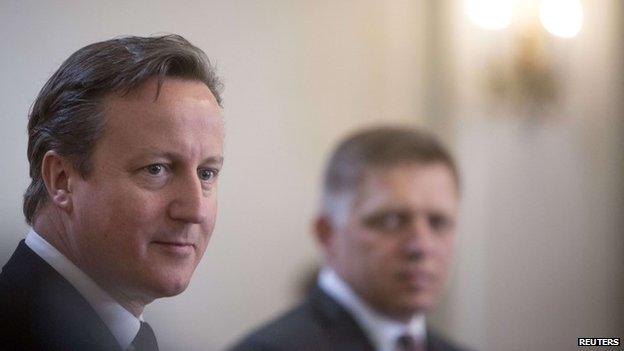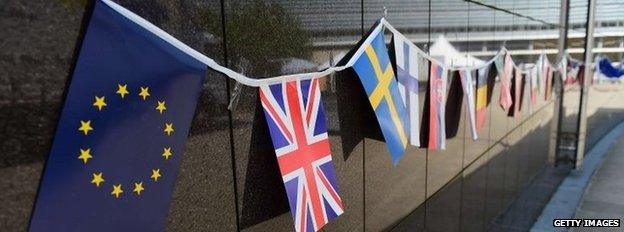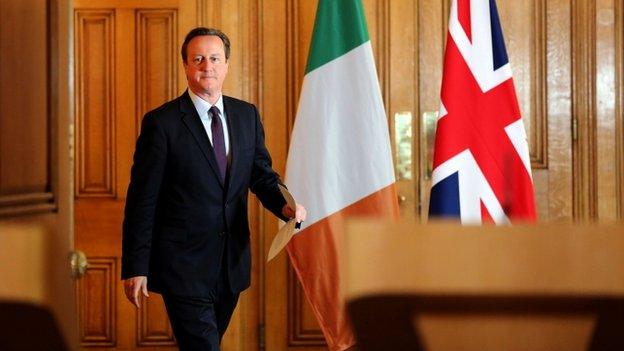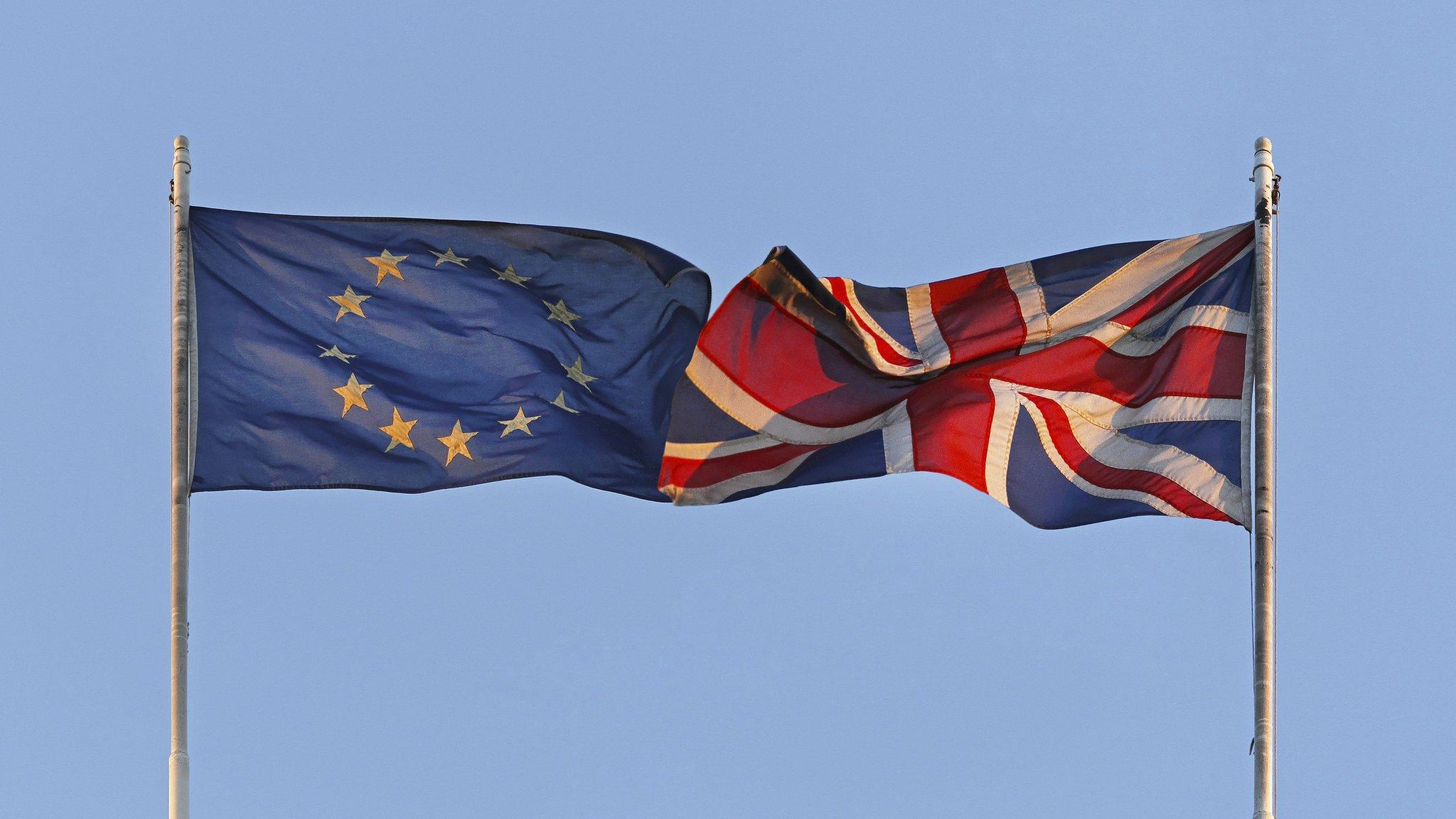David Cameron says EU renegotiation talks 'hard work'
- Published

Mr Cameron said "ever-closer union" was not for the UK
David Cameron has said it will be "hard work" to get the backing of all 27 other EU leaders for his plan to renegotiate the UK's membership.
Speaking in Bratislava after talks with his Slovakian counterpart, the UK prime minister said he was "convinced" his approach was right and his planned reforms were in Europe's interests.
Slovakian PM Robert Fico said he was "sympathetic" to the UK's objectives.
Mr Cameron wants a referendum on the UK's future in the EU by 2017.
The UK prime minister has spent the last three weeks travelling around European capitals in an effort to build momentum behind his plan to change the terms of the UK's membership of the EU and obtain consent for this through a public vote by the end of 2017.
He is seeking to sound out all 27 leaders and other key players before a European Council summit next week, when the issue will be discussed officially for the first time.
After discussions with Mr Fico, Mr Cameron also met Czech prime minister Bohuslav Sobotka on the sidelines of an international security conference in the Slovakian capital.
'Change needed'
Asked by reporters what progress he had made, Mr Cameron replied: "It is going to be hard work to convince everybody that change is necessary but I am absolutely convinced that it is right."
Elaborating on some of the changes he wanted to see, he said: "We need more competitiveness, we need more fair rules between those who are in the euro and those that are out of the euro.

EU referendum in focus

David Cameron is starting renegotiation of the terms of Britain's EU membership ahead of a referendum. Here is some further reading on what it all means:
Q&A: The UK's planned EU referendum
UK and the EU: Better off out or in?

"We need to crack this problem of large migratory movements across Europe, far bigger than what the founding fathers ever envisaged. I think the right way to do that is greater determination of national welfare systems."
The European Union, he said, should be an "association of states that co-operate and work together" and the UK did not want to play any part in moves towards a "federal state or European state".
"Britain has never believed in that. It is not the reason for our membership and I want that made explicit which is why I draw such attention to these words "ever-closer union". This is not what Britain seeks."
Mr Fico said his country was not opposed, in principle, to any of the UK's proposals, including on tighter rules for welfare entitlements.
"We do have a great understanding and sympathy towards the need of the EU's new winds of reforming some areas. There are no categoric statements Slovakia would be saying that we are against this or that cannot be done.
"The Slovak republic fully supports Britain's position with regard to the need of increasing EU's competitiveness. We also share the same opinion with the UK with regard to some people abusing the welfare systems of some wealthy countries."
Slovakia will take on the rotating six-month presidency of the EU from July 2016. The UK has said it wants the negotiations to be completed by the end of next year at the latest.
- Published18 June 2015

- Published30 December 2020

- Published20 February 2016
